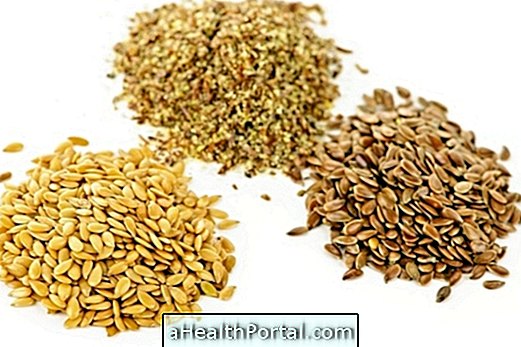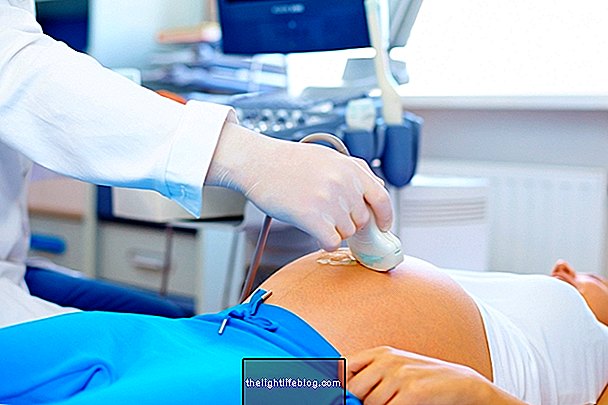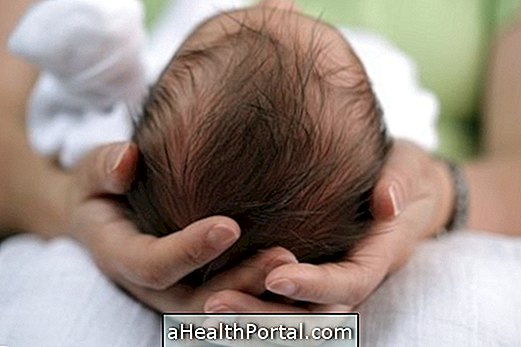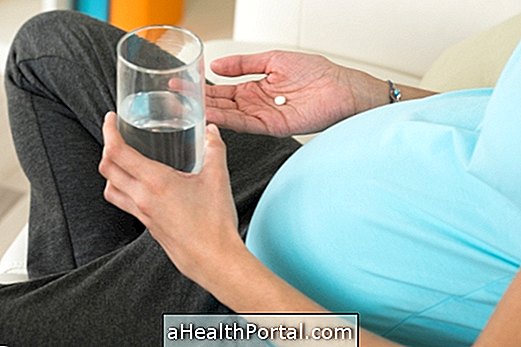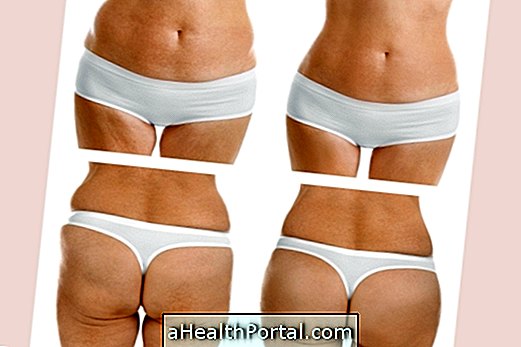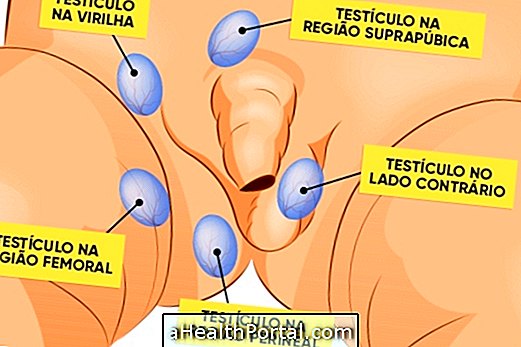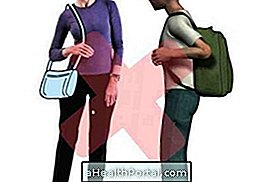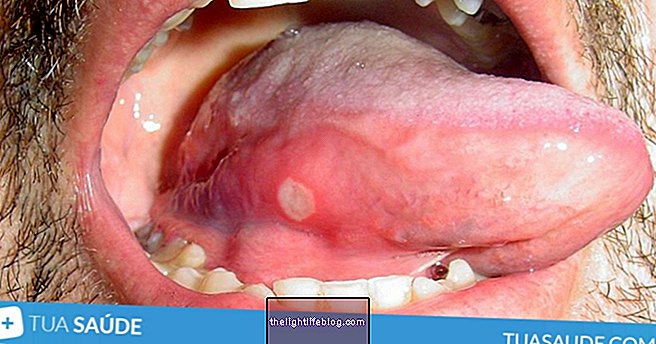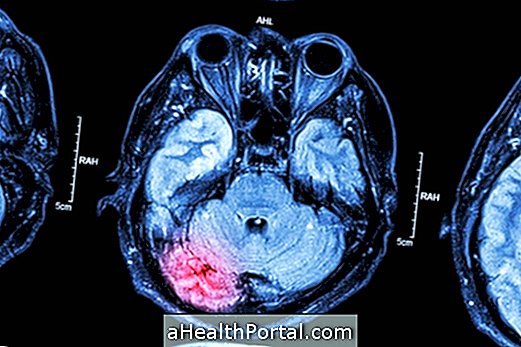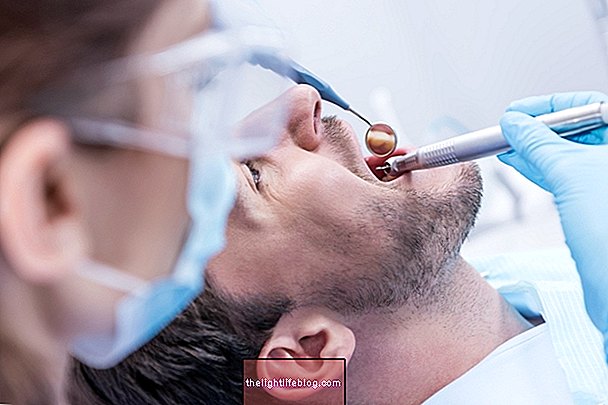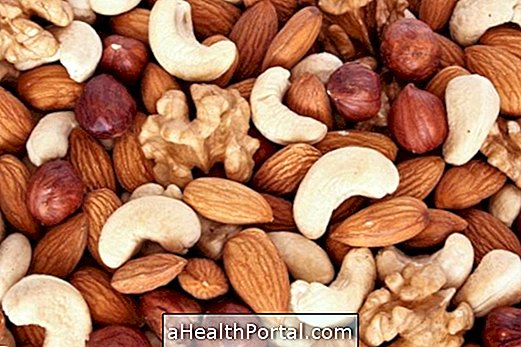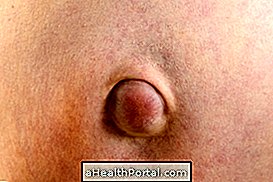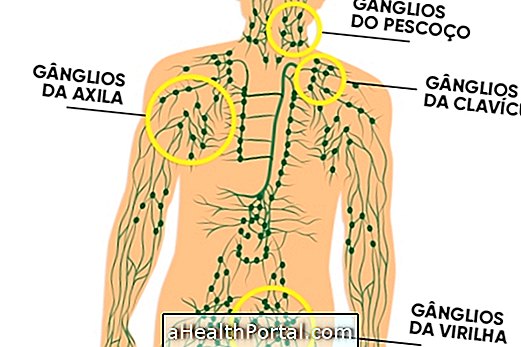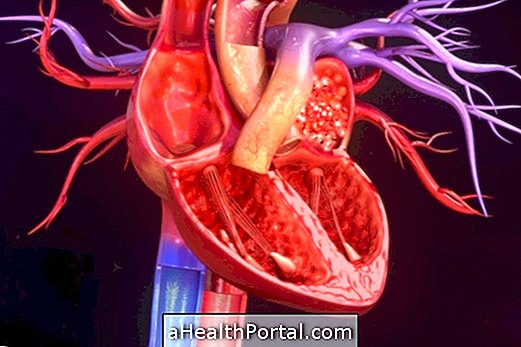The first trimester is from the 1st to the 12th week of pregnancy and during this period the body will adapt to successive changes that will last approximately 40 weeks until the baby is born.
At this stage, there are important care that the mother must take so that the baby can grow and develop in a healthy way.

Main Care During Pregnancy
The beginning of pregnancy is one of the periods that requires more care so that the baby can develop and be born at the right time, so during this phase the most important care is:
- Do not take medicines without medical advice: Most medicines have not been tested during pregnancy and so it is not known if they are safe for the mother and the baby. Some pass through the placenta and can cause serious changes, as is the case of Roacutan. Usually the only remedies the pregnant woman can take are Novalgina and Paracetamol.
- Do not do high-impact exercises: If the pregnant woman already practices some exercise such as walking, running, Pilates or swimming, she can continue with these types of exercises, but she should stop exercises involving jumping, body wrestling, sudden physical contact.
- Do not drink alcohol: Throughout the pregnancy the woman should not consume any type of alcohol because it can cause fetal alcohol syndrome
- Even when the woman is pregnant, the condom should be used to avoid getting any disease that may interfere with the growth of the baby and may even contaminate the child, and may have serious implications, such as case of gonorrhea, for example.
- Do not use drugs: The use of illicit drugs can not be done during pregnancy because they reach the baby and seriously interfere with its development and still leave the baby addicted, which makes him very crying and restless at birth, making it difficult for him daily care;
- No smoking: Cigarette smoking also interferes with the growth and development of children and therefore the pregnant woman should not smoke, or even be very close to other people who are smoking, because secondhand smoke also reaches the baby, hampering its development.

Specific care for the 1st trimester
- Go on all prenatal visits;
- Do all the exams that the obstetrician asks for;
- Eat well, eating vegetables, vegetables, fruits, grains and dairy, avoiding sweets, fat, fried foods and soft drinks;
- Keep the doctor informed of the symptoms you present;
- Always walk with the pregnancy booklet inside the bag, because there will be noted the main aspects of the health of the woman and the baby;
- Take any vaccinations that are missing, such as the tetanus and diphtheria vaccine against hepatitis B (recombinant vaccine);
- Take folic acid (5 mg / day) for up to 14 weeks for the prevention of open neural tube defects;
- Go to the dentist's office to assess your oral health and need for treatments, fluoride application, or dermatitis.
How to relieve the discomforts of early pregnancy
During this phase, the woman usually has symptoms such as headache, increased tenderness in her breasts, dizziness, and may find it easier to have gingivitis, so see how to deal with each situation:
- Nipple: More frequent in the morning and can be circumvented, in most cases, avoiding prolonged fasting and eating a toast or wafer of salt and water before getting out of bed in the morning.
- Breast tenderness : The breasts become larger and firmer, and because of the increase in weight and volume, it is advisable to wear a suitable bra without support wire. See which clothes are best for use in pregnancy.
- Changes in the skin: The skin of the breasts and belly stretches, loses elasticity and may begin to appear stretch marks, so apply plenty of moisturizer or a specific cream.
- Pigmentation: The nipples become darker and the vertical line that crosses the abdomen and crosses the navel becomes more visible. Brownish spots known as melasma may also appear on the face. To prevent these spots on the face always use a sunscreen cream.
- Oral health: The gums can swell and bleed more easily. To avoid using a soft toothbrush and visit your dentist.
